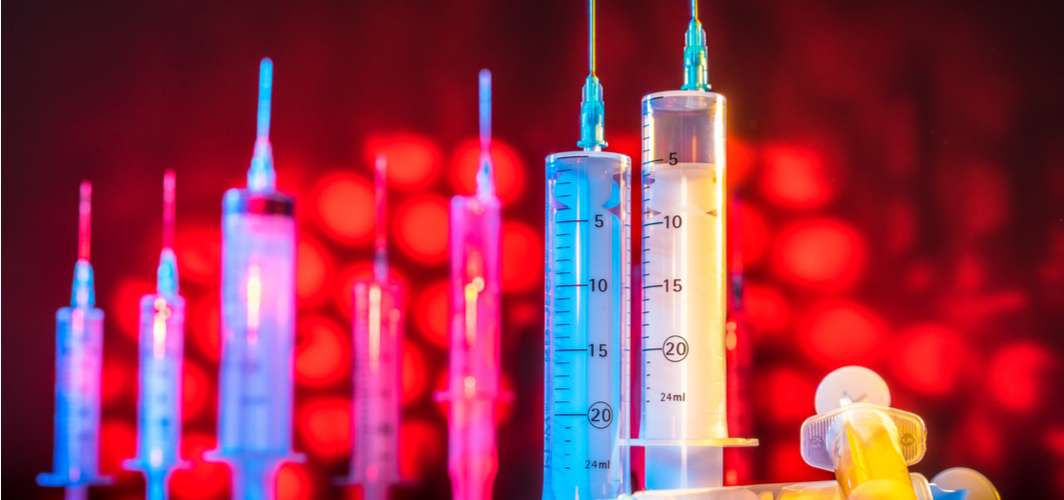COVID-19 Vaccines
Mixing Vaccines Could Boost Efficacy, Research Indicates
3 min read
By Apollo 24/7, Published on - 10 January 2022, Updated on - 18 October 2022
Share this article
0
18 likes

With the surge in Omicron cases across the globe, the Union Health Ministry of India has decided to commence COVID-vaccination for children in the age group 15 to 18, and a preventive booster dose for the healthcare workers and senior citizens with comorbidities. While it is believed that the booster dose should be the same as the primary vaccine (the first two doses), a recent study conducted by the AIG hospital, Hyderabad, found that switching of vaccines for the third dose could be more effective in fighting COVID-19 infection.
Studying the efficacy of mixed vaccines in India
The study included a total of 330 candidates who were neither exposed to the COVID-19 virus nor vaccinated against it. However, on testing it was found that 87% (286 participants) of them had antibodies against the COVID-19 virus, therefore, were removed from the study. Depending on the type of vaccine administered, the remaining 13% (44 participants) were divided into four groups:
- Group 1 received Covishield for both the doses
- Group 2 received Covaxin for both the doses
- Group 3 received the first dose of Covishield and second dose of Covaxin
- Group 4 received the first dose of Covaxin and second dose of Covishield
Over a period of 2 months, it was found that participants who received the first and second dose of different vaccines had four times higher spike-protein neutralizing antibodies than those who received the same vaccine both times. The higher the spike-protein neutralizing antibodies, the lower would be the infection rate. Furthermore, no adverse side effects were reported in any of the groups after the administration of the vaccine.
However, the study is in a pre-print state and has not been peer-reviewed yet.
Recommended reading: COVID-19 Factbox: All About Vaccine Efficacy
To mix or not to mix?
Several countries, including the US, have been using mixed and matched vaccines such as Pfizer, J&J, or Moderna for the booster dose of COVID-19. Moreover, a research found that in comparison with unvaccinated people, people who received mixed vaccines were 68% less likely to develop symptomatic COVID-infection, while those who received both doses of AstraZeneca were only 50% less likely to develop symptoms post-COVID-virus exposure.
In India, the use of vaccine cocktails for a COVID-19 booster dose is still being contemplated.
The National Technical Advisory Group on Immunisation is uncertain about the use of mixed vaccines due to lack of large scale research and increased risk of high reactogenicity (reactions that develop post-vaccination). The results of the AIG Hospital study have been shared with the Indian Council for Medical Research (ICMR) to help decide whether the mixing and matching of the vaccines for the third dose are beneficial. Meanwhile, institutions like the Christian Medical College in Vellore are conducting human trials to examine the efficacy of a mix of Covishield and Covaxin for COVID-booster dose.
Recommended reading: Debunking COVID-19 Vaccine Myths with Facts
Conclusion
The World Health Organization (WHO) stated that countries should take into account the benefits, risks, availability and accessibility of the vaccine before mixing and matching. However, the Indian government is yet to decide on using a mixed vaccine for the preventive booster dose, which will be administered from 10th January 2022. Eligible people must register themselves on the Co-WIN app or on-site for vaccination. You can also register for the COVID-19 vaccination on the Apollo 247 app.
Have more queries concerning vaccines and booster doses?
COVID-19 Vaccines
Leave Comment
Recommended for you

COVID-19 Vaccines
Will there be a fair distribution of COVID-19 vaccines across the world?
While WHO and other global health bodies are working to ensure equitable global distribution of vaccines, ‘vaccine nationalism’ could deprive poor and needy people of life-saving vaccines.

COVID-19 Vaccines
Debunking COVID-19 Vaccine Myths with Facts
The apprehensions and fears about COVID-19 vaccines have been fueled to a great extent by the myths and misconceptions circulating on social media.

COVID-19 Vaccines
Will the Approved Vaccines be Effective Against the Mutated Coronavirus Variants?
Although testing the new variant strains will take some time, most scientists believe that the approved vaccines will most likely be effective against the new strains.
Subscribe
Sign up for our free Health Library Daily Newsletter
Get doctor-approved health tips, news, and more.
Visual Stories

COVID-19 Vaccine Factbox: COVID-19 Vaccine Roundup (15 March 2021)
Tap to continue exploring
Recommended for you

COVID-19 Vaccines
Will there be a fair distribution of COVID-19 vaccines across the world?
While WHO and other global health bodies are working to ensure equitable global distribution of vaccines, ‘vaccine nationalism’ could deprive poor and needy people of life-saving vaccines.

COVID-19 Vaccines
Debunking COVID-19 Vaccine Myths with Facts
The apprehensions and fears about COVID-19 vaccines have been fueled to a great extent by the myths and misconceptions circulating on social media.

COVID-19 Vaccines
Will the Approved Vaccines be Effective Against the Mutated Coronavirus Variants?
Although testing the new variant strains will take some time, most scientists believe that the approved vaccines will most likely be effective against the new strains.